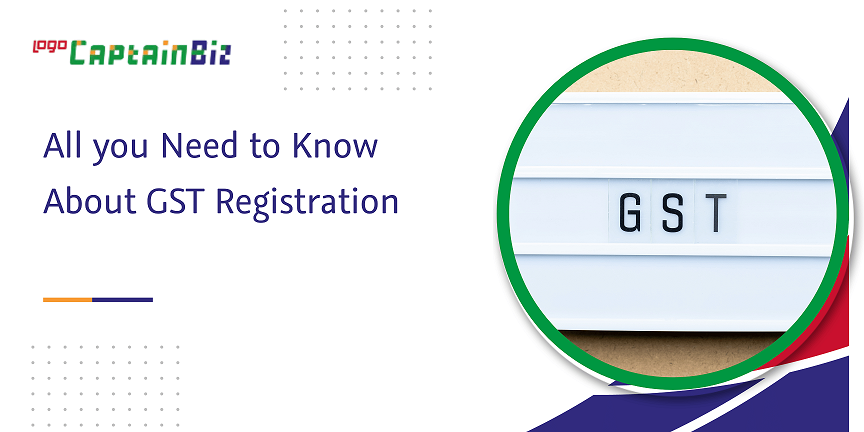Leading Tips for a Smooth Singapore GST Registration Experience
Leading Tips for a Smooth Singapore GST Registration Experience
Blog Article
The Ultimate Guide to Streamlining the GST Enrollment Refine and Demands for Small Organization Owners

Recognizing GST Fundamentals
To comprehend the basics of the Goods and Services Tax Obligation (GST) system, small company owners should first understand its underlying effects and concepts. GST is a value-added tax obligation levied on most items and solutions for domestic intake. It aims to streamline the taxes procedure by changing several indirect taxes enforced by the state and main federal governments. Under the GST routine, organizations are required to sign up and accumulate tax in behalf of the federal government, making sure transparency and conformity.
One of the vital principles of GST is input tax obligation credit history, which permits services to assert credit score for taxes paid on their acquisitions. This mechanism stops the plunging effect of tax obligations and advertises performance in the tax system. In addition, GST is a destination-based tax obligation, indicating that the tax obligation is levied at the point of intake as opposed to the factor of beginning. This makes sure reasonable distribution of tax revenue amongst states based upon where the goods or services are consumed. Comprehending these standard principles is vital for small company owners to browse the intricacies of the GST system and make certain compliance with the legislation.
Eligibility Requirements for Enrollment
Having actually established a foundational understanding of GST concepts, local business owners need to now satisfy certain eligibility requirements to wage the registration procedure. In India, entities participated in the supply of products or services with an annual accumulation turn over surpassing Rs. 40 lakhs (Rs. 10 lakhs for special category states) are needed to register for GST. Furthermore, particular businesses such as those entailed in inter-state supply of goods, informal taxed persons, and those required to pay tax obligation under the reverse cost system need to register for GST irrespective of their turn over. In addition, services that were registered under the previous tax obligation program (VAT, service tax obligation, etc) are also mandated to sign up under GST. Agricultural companies that just supply generate out of main manufacturing are exempt from GST enrollment. It is critical for entrepreneur to thoroughly analyze their eligibility based upon these requirements to ensure conformity with the regulation and prevent any kind of penalties for non-compliance.
Documents Required for GST Registration

Simplified Registration Refine Steps
Following the collection and verification of the requisite papers, the enrollment process for GST can be browsed through a series of simplified steps made to promote effective compliance for little organization proprietors. Upon effective verification, an Application Referral Number (ARN) is released, indicating the completion of the GST registration procedure. By following these simplified steps, small company proprietors can effectively sign up for GST and make sure conformity with tax obligation laws.
Tips for Ensuring Compliance
To preserve governing adherence and functional stability, persistent oversight and aggressive steps are pivotal in making certain compliance with GST needs for tiny company proprietors. Tiny organization proprietors should stay updated with GST regulations, filing deadlines, and any adjustments in tax rates to prevent fines and keep an excellent standing with tax obligation authorities. Going to GST understanding workshops or training programs can enhance understanding and compliance with GST regulations, eventually benefiting the company in the long run.
Final Thought
Finally, small company proprietors must understand the view it fundamentals of GST, satisfy the eligibility requirements, collect needed records, and comply with the streamlined registration procedure actions to ensure conformity. By simplifying the GST enrollment process and demands, small company proprietors can stay clear of charges and run their organizations efficiently within the lawful structure - Singapore GST Registration. It is essential for little service owners to stay enlightened and certified with GST guidelines to maintain an effective business operation
Small company owners seeking GST click this enrollment must guarantee they gather and submit the necessary files to complete the registration process effectively. The files required for GST enrollment usually consist of evidence of company registration or incorporation, PAN (Irreversible Account Number) card of the business identification, address and entity evidence of the promoters/partners/directors, photographs, address evidence of the place of service, bank account statements or canceled cheques, and authorization kinds. Attending GST understanding workshops or training programs can boost understanding and compliance with GST regulations, ultimately benefiting the organization in the lengthy run.
By simplifying the GST enrollment process and needs, tiny company owners can prevent fines and run their businesses efficiently within the lawful framework. It is essential for tiny organization owners to stay informed and certified with GST laws to maintain an effective company operation.
Report this page